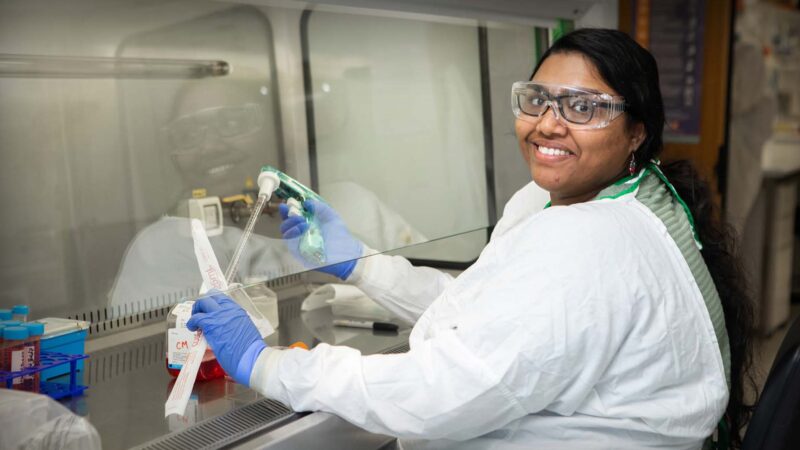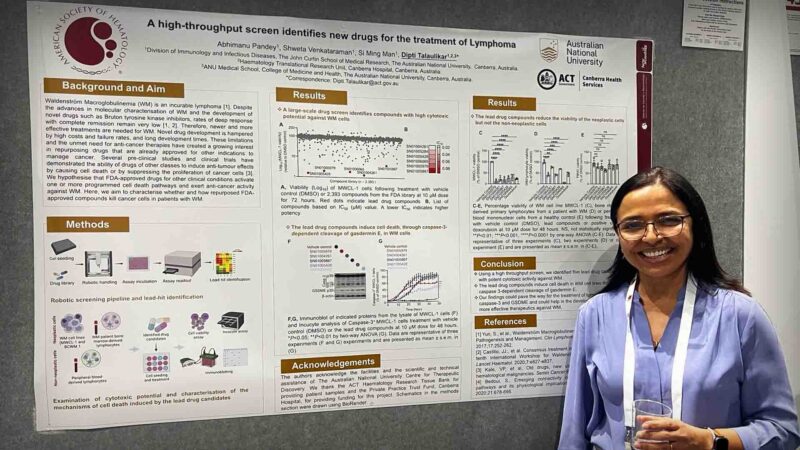RESPIRATORY HEALTH AND THE MICROBIOME IN THE LUNG ENVIRONMENT
Dr Steven Taylor, Postdoctoral Researcher,
Head of Respiratory Health Group
South Australian Health and Medical Research Institute (SAHMRI)
Adelaide, South Australia
RESEARCHER PROFILE
Filmed in Adelaide, South Australian | December 2024
Dr Taylor leads the Respiratory Health Group within the Microbiome and Host Health Program. His research employs tailored techniques that allow the lung environment to be characterised to a high level of accuracy, including detailed measurements of airway microbiology (microbiome), mucus composition, and inflammation. This information is used to identify predictive markers of chronic lung disease severity as well as determine effective forms of therapy.
Dr Taylor is one of the researchers leading The GRACE study, a project that aims to investigate the carriage and transfer of resistant bacteria or ‘superbugs’ in residential aged care.
Funded by the National Health & Medical Research Council’s Medical Research Future Fund, this study will produce new evidence to help us to improve facility management, including cleaning and hygiene practices, to prevent the spread of harmful bacteria, and ultimately improve the health of aged care residents and the wider community.
Dr Taylor also recently led a study that showed genetics may play a crucial part in the efficacy of probiotics. Published in ISME Journal in June the study, focussed on the interactions between probiotics and individual genetic traits. Researchers say their findings suggest a more tailored approach to using probiotics may have the potential to significantly enhance gut microbiome regeneration and related health benefits.
You Might also like
-
Cancer survivorship and exercise oncology
Professor Sandra Hayes is the Director of Research at Cancer Council Queensland (CCQ), where she leads a comprehensive cancer research program encompassing cancer epidemiology, prevention, detection, treatment, and survivorship.
With a BAppSci (Hons) and a PhD in exercise oncology, Professor Hayes’s expertise lies in quantifying the impact of cancer diagnosis and treatment on physical and psychosocial wellbeing, quality of life, and survival. She also evaluates innovative supportive care strategies, particularly exercise, to improve post-cancer lives.
-
Nanoparticles & microparticles to combat antimicrobial resistance
Dr Anjana Jayasree is an emerging research leader in biomaterials, tissue engineering and nanotechnology, recognised internationally for her innovative work on antimicrobial nanoparticles and regenerative therapies. A Postdoctoral Research Fellow at The University of Queensland, she operates at the intersection of materials science, drug delivery and cellular biology, developing advanced metallic-based nanotechnologies to improve both human and animal health outcomes. Her expertise spans nanoparticle synthesis, cell–material interactions, and the design of sophisticated in vitro models to investigate soft-tissue integration, osseointegration, angiogenesis and biofilm formation.
-
Lymphoma, Myeloma and Genomics
Professor Dipti Talaulikar is a clinical and laboratory haematologist with expertise in genomics, working at Canberra Health Services, and Professor at ANU. She has a clinical and research interest in lymphoma, myeloma and genomics, and has authored close to 100 peer reviewed papers, including several clinical guidelines that have had a significant impact on clinical practice.



